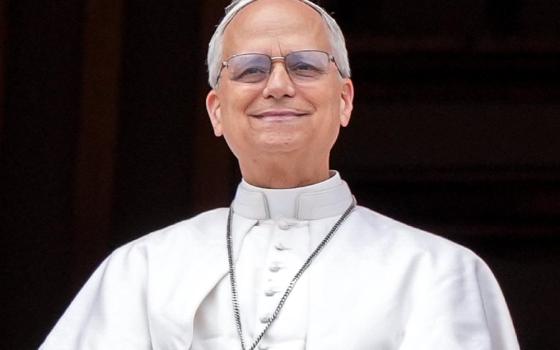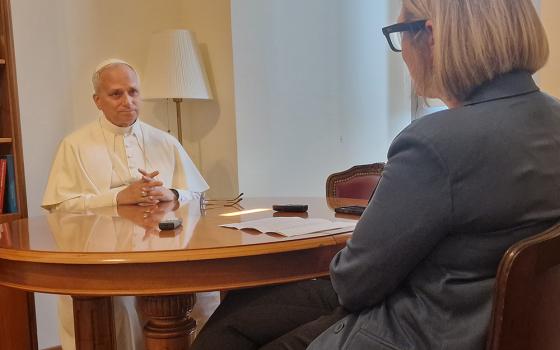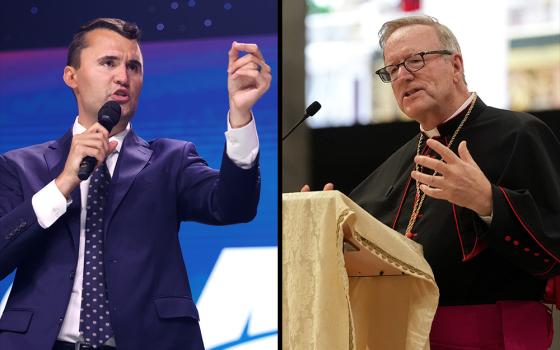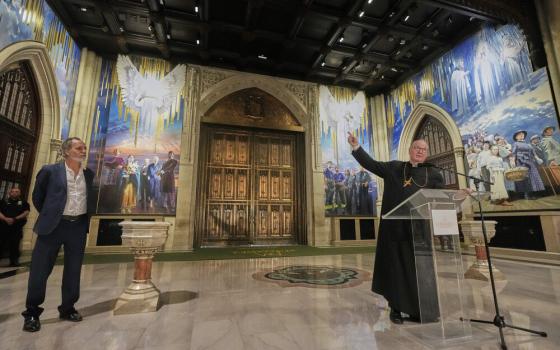
(Unsplash/SEO Galaxy)
Tech zealots and doomers alike make apocalyptic predictions these days of how artificial intelligence will devastate all manner of jobs.
It's no wonder, then, why there's been so much positive chatter about Pope Leo XIV's talk of confronting a second "industrial revolution," sparked by AI, which presents "new challenges for the defence of human dignity, justice, and labor."
His selecting the name "Leo" intentionally recalls his predecessor, Leo XIII, who in his encyclical Rerum Novarum called for workers' rights in the wake of the first industrial revolution. Rerum Novarum was indeed a groundbreaking Catholic document. For many workers, however, it was too little, too late.
When it was published in 1891, the Industrial Revolution had been underway for decades, giving rise to immense human suffering and social upheaval, and fueling the European revolutions of 1848 — the same year Karl Marx and Frederic Engels published their Communist Manifesto.
In response, the church condemned communism, but missed a golden opportunity to offer hope to struggling laborers — many of whom would wash their hands of the church.
That is why, in 1925, Pope Pius XI would lament that "the greatest tragedy of the 19th century was the loss of the working class by the church." '
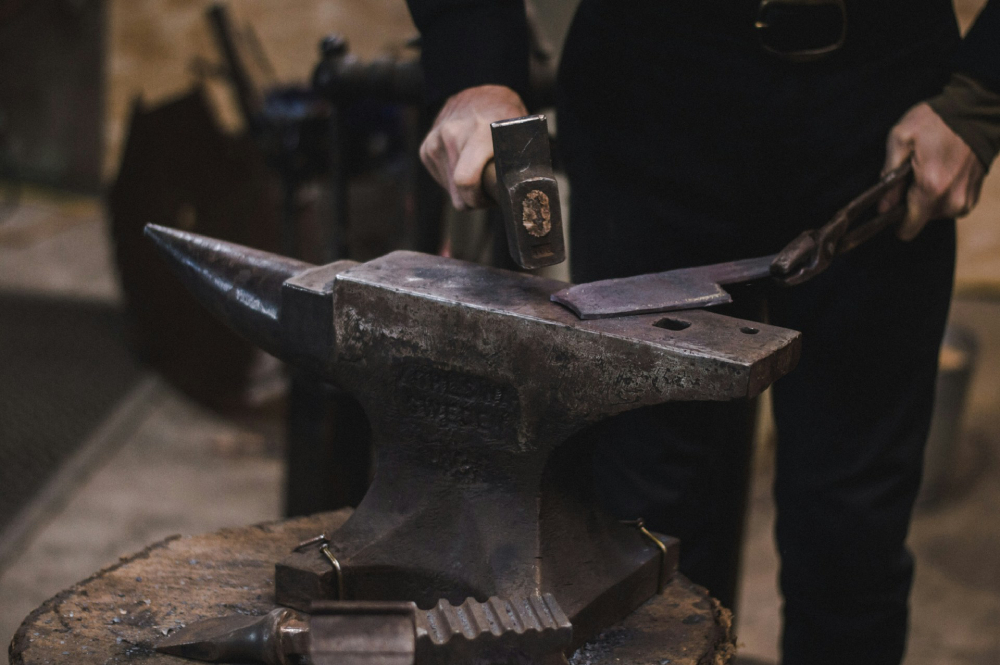
(Unsplash/Maranda Vandergriff)
The church cannot afford to lose time in responding to this new industrial revolution. Facing what Pope Francis in "Laudato Si', on Care for Our Common Home" called the "rapidification" of technological change by those who, in the infamous words of Meta Platforms and Facebook CEO Mark Zuckerberg, wish to "move fast and break things," the time to act is now.
Of special concern is that today's Big Tech firms have become monopolies — a recurring threat to American workers. In 1919, the U.S. hierarchy's "Bishops Program for Social Reconstruction" warned of "the immense opportunities for oppression and extortion that go with the possession of monopoly power" — an assertion quoted verbatim a century later in the U.S. bishops' conference Labor Day Statement of 2019.
In his 2024 World Day of Peace message, Pope Francis warned about "technological dictatorship" — as good a definition of monopoly power as any. That caution was echoed this past January in the Vatican's doctrinal note on AI, Antiqua et Nova, which expressed concern about "the concentration of AI applications in the hands of a few corporations."
These ecclesiastical pronouncements don't mention Big Tech firms by name, but there's no question as to who they are: Microsoft, Apple, Alphabet (Google), Meta and Amazon. Recently these "Big Five" have been expanded as the "Magnificent Seven" to include Elon Musk's Tesla and Nvidia, which manufactures computer chips for AI.
As of July 2024, the Magnificent Seven were worth $15.4 trillion combined. And that doesn't include OpenAI (ChatGPT), which was recently valued at $300 billion. Collectively, these firms exercise massive influence on cultures, countries and the future of work. Such multinational giants, wrote Francis in Laudato Si', can "exercise more power than states themselves."
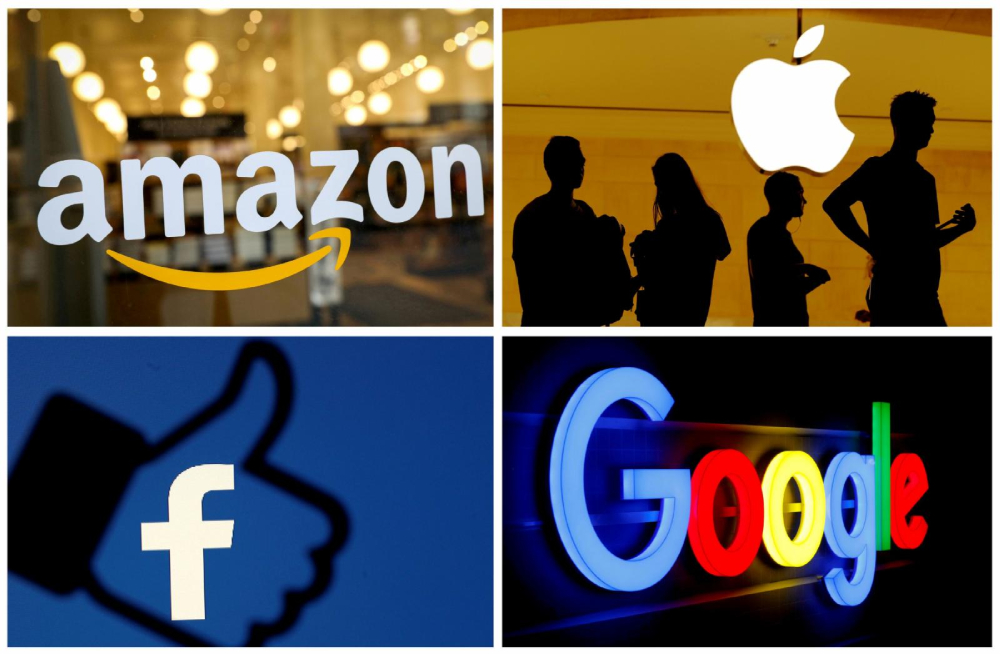
The logos of Amazon, Apple, Facebook and Google are seen in this combination photo. (CNS photo/Reuters)
In the recent past, the federal government has sued Amazon, Apple and Meta for being monopolies. Google was declared a monopoly by the Justice Department last year, following a successful suit against Microsoft years earlier. And as for their treatment of workers, Google, Apple, Meta, Amazon and Tesla have all been accused of union-busting tactics.
OpenAI is run by co-founder Sam Altman like a monopoly, forcing smaller companies to launch new products through it. With this practice, Altman takes a cue from a mentor he shares with Zuckerberg and Vice President JD Vance: billionaire Peter Thiel.
Thiel is enriched by selling surveillance tech to the U.S. government while likening the Food and Drug Administration and the Nuclear Regulatory Commission to "the antichrist." His philosophy of commerce? "Monopoly is the condition of every successful business." Which is why, he concludes, "competition is for losers."
But without competition, the real losers are workers facing an AI-saturated future dominated by tech monopolies against which they have little power, if they still have jobs. Even now, some employers intimidate workers by threatening to replace them with AI. And unlike the first industrial revolution, it's not just artisans and laborers whose livelihoods are at stake — it's everyone's.
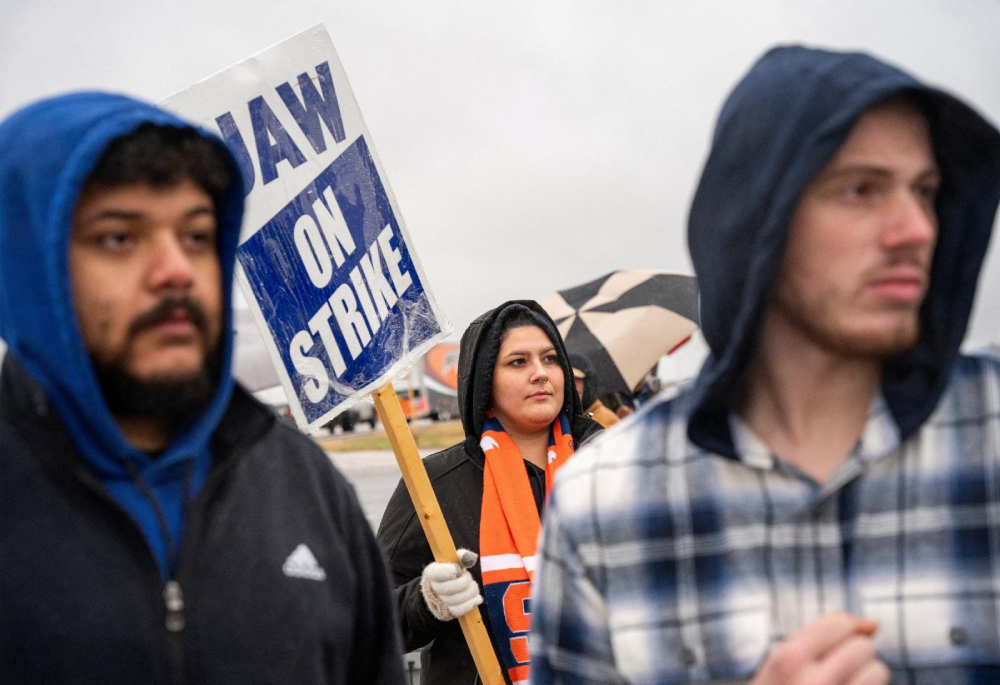
United Auto Worker members picket General Motors outside the engine plant in Spring Hill, Tenn., Oct. 30, 2023. (OSV News/Reuters/Seth Herald)
Pushing back against this "techno-feudalist" future can seem like trying to slay a dragon with a butter knife. But perhaps that's why Pope Leo XIV has stressed that, at this critical moment, the church "offers to everyone the treasure of her social teaching." With this encouragement, following are arenas in which this teaching might be practically applied to matters of AI, monopolies and labor:
Business ethics: Business can be a "noble vocation … especially if it sees the creation of jobs as an essential part of its service to the common good," wrote Francis in Laudato Si', in which he lamented the practice of "laying off workers and replacing them with machines."
Business leaders can embrace this vocation by permitting unions and honoring work as fundamental to human dignity. "Remember that you are leading people, not technology," as Ann Skeet, senior director of leadership ethics at Santa Clara University's Markkula Center for Applied Ethics, told me.
Collaborative arrangements: Catholic institutions should be prudential when contemplating formal engagements with tech firms which wield monopoly power, inhibit unions, mistreat workers or develop products designed to supplant human labor.
To borrow from the U.S. bishops' Ethical and Religious Directives for Catholic Health Care Services, they should "ensure that the integrity of the Church's witness to Christ and his Gospel is not adversely affected by a collaborative arrangement."
Consumer choices: Laudato Si' calls for "social responsibility on the part of consumers" who can "prove successful in changing the way businesses operate" by "boycotting certain products" — including those of tech firms unfriendly to labor.
Advertisement
"Purchasing," as Pope Benedict XVI insisted in Caritas in veritate, "is always a moral — and not simply an economic — act." A quest for "efficiency" or "progress" does not justify purchasing a product or service that denigrates human dignity.
Engaged ownership: Tech firm stock owners can use shareholder power to champion labor justice "through corporate dialogues, proxy voting, and support of shareholder resolutions," as suggested by the U.S. bishops' Socially Responsible Investment Guidelines.
Alternately, those same guidelines suggest "divesting from companies whose activities are known to persistently violate the human rights of their workers."
Legal protections: Francis' 2024 World Day of Peace message on AI appealed for "the dignity of laborers and the importance of employment" while highlighting the "responsibility of sovereign states to regulate (AI)."
In our nation, the U.S. bishops' conference in 2019 called for state and federal intervention "to prevent anticompetitive behavior by employers that lower wages." This past June, the bishops wrote to Congress about AI, stressing that "(p)olicies and regulations should ensure protections for workers."
Dialogue and listening: To build bridges and share Catholic thinking, Francis publicly met with Zuckerberg, Musk, Altman, Amazon's Jeff Bezos, and top brass at Apple, Microsoft and Google, while the Vatican sponsored closed-door sessions with tech experts called the "Minerva Dialogues." These efforts should continue as AI's impact grows.
To hear workers' voices, Aimee Shelide Mayer, interim executive director of the Catholic Labor Movement, proposes synodal listening sessions across all trades and professions by asking: "How is AI affecting you? How is it impacting your work?" Such an initiative would help the church see more clearly the effects on employment by AI's expansions, she said.
And clear vision is critical at this moment. "Nothing is more useful than to look upon the world as it really is," wrote Pope Leo XIII in Rerum Novarum. Thankfully, Leo XIV sees what is unfolding today with AI, and seeks to defend human labor in the face of a new industrial revolution.
Failure to do so the last time alienated many from the church. This time, maybe we'll welcome some back.

